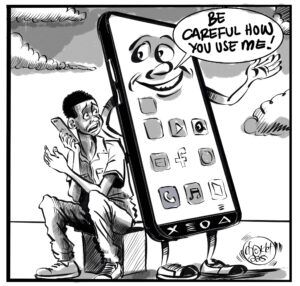Prisons Care and Counseling Association (PRISCCA) executive director, Dr Godfrey Malembeka says myths surrounding the signing of bail conditions in Zambia need to be revised to stop the State from misleading people on the country’s legal matters.
Speaking to News Diggers in an interview over the continued detention of New Labour Party president Fresher Siwale, who was arrested on April 24, 2018, for questioning President Edgar Lungu’s nationality, Malembeka said Zambians had not received enough legal awareness on the myths that surround bail conditions in Zambia.
“There is a traditional belief in Zambia that only civil servants are supposed to sign bail. It can be anyone. Relatives of someone who has been remanded can actually look for traditional leaders, our chiefs and even pastors from your church. Applying for a bail is right but granting it is a jurisdiction of the jailer (the Magistrate or Judge),” he said.
“Zambia has not received enough legal awareness, there is no law that suggests that only those who work in government, or that only men and not women should sign. It is any person with fixed aboard in Zambia, someone well known. A Pastor, a Reverend, a traditional leader, a counselor and even headmen. But in that area, we have not worked well so we need to sensitise the people. That is why people are cheated sometimes and they are made to believe myths surrounding bail conditions or bail bond issues in Zambia.”
Dr Malembeka observed that there was serious need for the government to work with the media to educate citizens about the various types of bail and how they were granted.
Dr Malembeka also explained that cash money was not the only form of charging for bail, arguing that other things, including property could be given up to meet bail requirements.
“There are few officers who would even say that since the officer in charge is not here to sign the bail then let’s wait for him. There is also no law that suggests that only the officer in charge should sign, it’s the office of the officer in charge that actually needs to represent the officer in charge and sign for bail. The issue of cash bail also is over emphasised, there is no law again that only talks about cash, it can be cash in kind or payment in kind. If someone has cattle or tittle deeds, they can apply and actually tell them that ‘I don’t have cash, I can only offer them my title deeds or my building’. This is what the law states. So we are so much indoctrinated into believing that only Kwacha cash can be required amount to pay but no, it can be in kind,” he explained.
“We also need to do some explaining on the types of bail. Police bond is a street name which we have given ourselves just because that bail is given at the police station, otherwise there is no police bond per se, it’s only the agreement that was made. What was there is simply bail or bail bond. But we have pre trial bail which is given at the police…because if there was police bond then we are supposed to have death bond, ZAWA bond, we are supposed to have Anti-corruption bond. So it’s simply bail bond, pre trial bail issues at the police station and there is also bail that is issued during trail bail and there is also a constitutional bail. Constitutional bail is for any Zambian. It has no condition, even if someone finds himself in a special condition where the State is not giving evidence. You can apply for constitutional bail because you are a Zambian. So we have a lot with you the media. I pray that the Ministry of Information will put up a deliberate programme for public and private media to educate the people. Otherwise the issue of looking out for government workers should not be the case.”
Meanwhile, Dr Malembeka encouraged Siwale to use his lawyers to lobby for the variation of his bail conditions.
“His lawyers have the right to appeal, they can appeal to the High Court to have his conditions changed. It is a criminal offence but bailable. That is why he was granted bail but unfortunately he did not meet the bail conditions. PRISCCA does not take pleasure in anyone going there but we cannot say that people should not be arrested because we need law and order . The point is that if you are given bail but the sureties are not available and the bail conditions are not met, you will still be inside the correctional facility and that will still be legal. It can only be difficult when all sureties are available and the sureties are met and then you are not released, that’s where we can come in and lobby as PRISCCA but where someone has not met the bail conditions, it’s very difficult and it’s only lawyers that can appeal to the higher courts,” said Dr Malembeka.



















